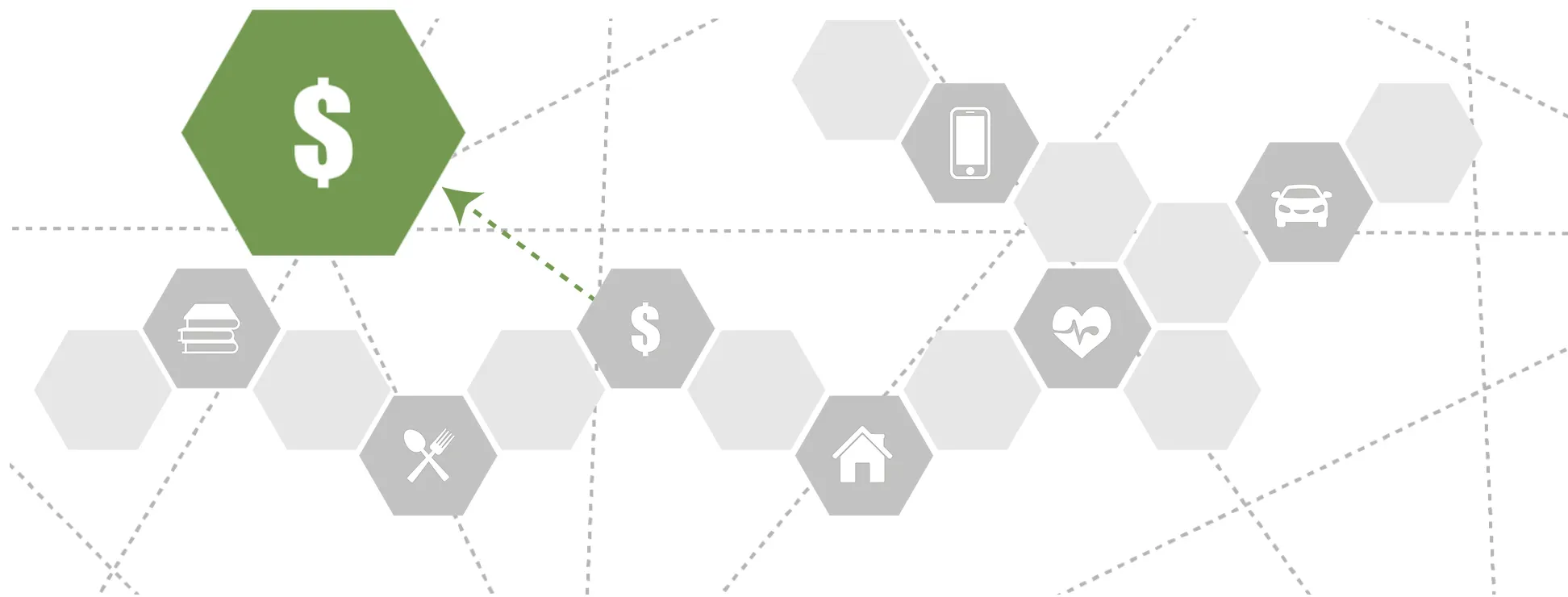
|
Housingclick to view |

|
Health Careclick to view |

|
Child Care and Educationclick to view |

|
Technologyclick to view |

|
Foodclick to view |

|
Taxesclick to view |

|
Transportationclick to view |
||
Future Trends: Tax Equality, the Gig Economy
The tax code can be used to either improve or worsen inequality. In general, federal taxes help make after-tax income more equal, while state taxes make it less equal. The most regressive state tax systems rely heavily on sales and excise taxes, while the least regressive states tend to have a progressive graduated income tax. The states that are often labeled as “low-tax” also tend to be high-tax for low- and middle-income households. In addition, reductions in state tax rates for income tax, sales tax, or payroll taxes would only slightly increase the income of ALICE families, but would have a negative impact on the public services and infrastructure — schools, roads, health care — that these families rely on.28 Changes in the tax structure that reduce or increase wealth inequality could affect the burden on workers, primarily through changes to property taxes, capital gains taxes, corporate taxes and an individual wealth tax.29
The challenge of collecting tax revenue will increase as the gig economy grows. More than 2.5 million U.S. taxpayers participate in the gig economy every year, and that number is set to more than double in the next few years. However, the classification of different types of work (e.g., salaried, contract, freelance) on tax forms hasn’t kept pace with this trend. Misclassification of work status by employers can allow them to shift tax administration and payment responsibilities to workers as well as evade other parts of employment law such as minimum wage, overtime, and benefits.30
Sources
28
Internal Revenue Service. (2017). Statistics for 2017 tax returns with EITC. Retrieved from https://www.eitc.irs.gov/eitc-central/statistics-for-tax-returns-with-eitc/statistics-for-2017-tax-returns-with-eitc
Institute on Taxation and Economic Policy (ITEP). (2018). Who pays? A distributional analysis of the tax systems in all 50 states (6th ed.). Retrieved from https://itep.org/whopays/
29
Leiserson, G. (2019, January 23). Wealth taxation: An introduction to net worth taxes and how one might work in the United States. Washington Center for Equitable Growth. Retrieved from https://equitablegrowth.org/wealth-taxation-an-introduction-to-net-worth-taxes-and-how-one-might-work-in-the-u-s/
Eggleston, J., & Munk, R. (2018, August). Net worth of households: 2014. Current Population Reports, P70BR-155, U.S. Census Bureau. Retrieved from https://www.census.gov/content/dam/Census/library/publications/2018/demo/P70BR_155.pdf
U.S. Census Bureau. (2014). Wealth, asset ownership, & debt of households detailed tables: 2014. Retrieved from https://www.census.gov/data/tables/2014/demo/wealth/wealth-asset-ownership.html
Wamhoff, S. (2019). The U.S. needs a federal wealth tax. Institute on Taxation and Economic Policy. Retrieved from https://itep.org/wp-content/uploads/012319-The-US-Needs-a-Federal-Wealth-Tax_Wamhoff.pdf
Institute on Taxation and Economic Policy (ITEP). (2018). Who pays? A distributional analysis of the tax systems in all 50 states (6th ed.). Retrieved from https://itep.org/whopays/
30
Ruckelshaus, C., & Gao, C. (2017, December 19). Independent contractor: Misclassification imposes huge costs on workers and federal and state treasuries. National Employment Law Project (NELP). Retrieved from https://www.nelp.org/publication/independent-contractor-misclassification-imposes-huge-costs-on-workers-and-federal-and-state-treasuries-update-2017/
Bruckner, C. (2016). Shortchanged: The tax compliance challenges of small business operators driving the on-demand platform economy. American University, Kogod Tax Policy Center. Retrieved from https://www.american.edu/kogod/research/upload/shortchanged.pdf
Maag, E., Roll, S., & Oliphant, J. (2016, December). Delaying tax refunds for Earned Income Tax Credit and Additional Child Tax Credit claimants. Tax Policy Center. Retrieved from: http://www.urban.org/sites/default/files/publication/86336/2001018-delaying-tax-refunds-for-earned-income-tax-credit-and-additional-child-tax-credit-claimants_0.pdf
Mendenhall, R., Edin, K., Crowley, S., Sykes, J., Tach, L., Kriz, K., & Kling, J. R. (2010, June). The role of Earned Income Tax Credit in the budgets of low-income families. National Poverty Center. Retrieved from http://npc.umich.edu/publications/u/working_paper10-05.pdf
Aladangady, A., Aron-Dine, S., Cashin, D., Dunn, W., Feiveson, L., Lengermann, P., Richard, K., & Sahm, C. (2018, June 21). High-frequency spending responses to the Earned Income Tax Credit. Retrieved from https://www.federalreserve.gov/econres/notes/feds-notes/high-frequency-spending-responses-to-the-earned-income-tax-credit-20180621.htm

